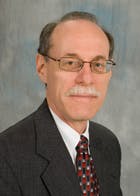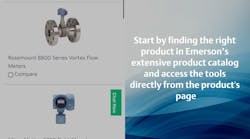Working for a small company involves performing more varied tasks as compared to working for a large company. Similarly, the work of a consultant is more varied than work performed by people who are directly employed by a company. As a result, consultants often have a difficult time describing what they do simply because what they do can vary all over the map.
I recently presented my Industrial Flow Measurement Seminar in South Africa. Although I have presented this seminar in Portuguese in Brazil, this was the first time I presented the seminar in English to a non-North American English-speaking audience. I prepared for the seminar with caution because you never know when a legitimate North American English expression can mean something completely different in another country.
I began the seminar in South Africa wondering when my first gaff would occur—but there were none (that they told me about). I was later told that my fears were fundamentally unfounded because most South Africans are routinely exposed to North American television, radio and movies. Nonetheless, there were a few words that I had to define because they were not part of the South African lexicon.
In general, students enter the Industrial Flow Measurement Seminar with a considerable amount of knowledge relevant to flow measurement. By approaching this particular seminar with a different perspective, I discovered that the seminar fundamentally reorganizes knowledge the student already possesses to make his/her existing knowledge more usable (as well as fill in some of the holes). This is in contrast with teaching (say) a calculus class where most students have no knowledge of calculus when they enter.
I’ll be presenting my next Industrial Flow Measurement Seminar for Flow Control April 16-18 in Chalfont, Pa. (near Philadelphia). This training will be hosted at an Endress+Hauser Process Training Unit, which is a full-scale, working process skid with online instrumentation and controls. So, rather than a standard hotel-based classroom experience, this training will offer the opportunity to gain hands-on experience with the types of operation, diagnostics and troubleshooting found in real-life process plants. For full details on this training, please visit FlowControlNetwork.com/FlowSeminar.
David W. Spitzer is a regular contributor to Flow Control magazine and a principal in Spitzer and Boyes, LLC, offering engineering, seminars, strategic marketing consulting, distribution consulting, and expert witness services for manufacturing and automation companies. David has more than 35 years of experience and has written over 10 books and 250 articles about flow measurement, instrumentation and process control.
David can be reached at 845 623-1830 or www.spitzerandboyes.com. Click on the “Products” tab to find his Consumer Guides to various flow and level measurement technologies.




